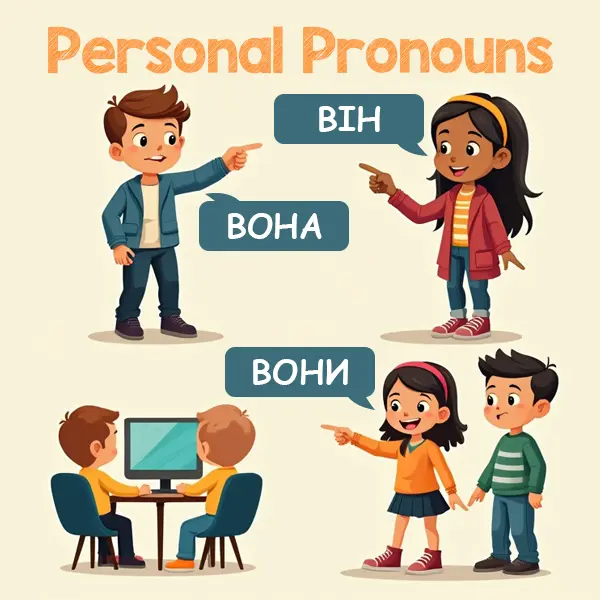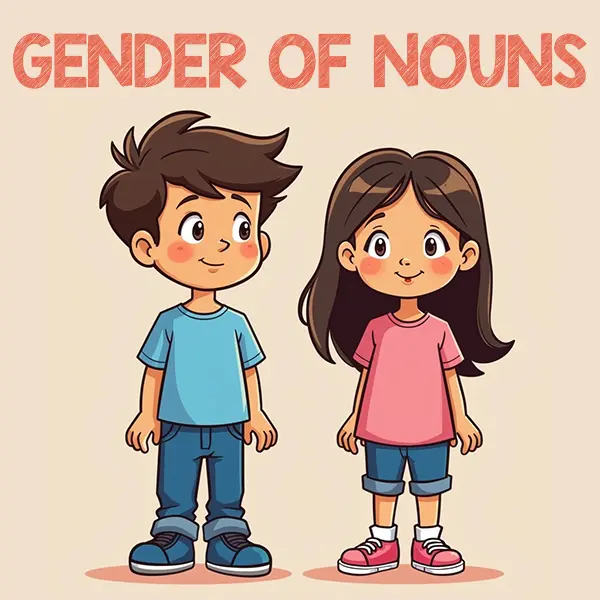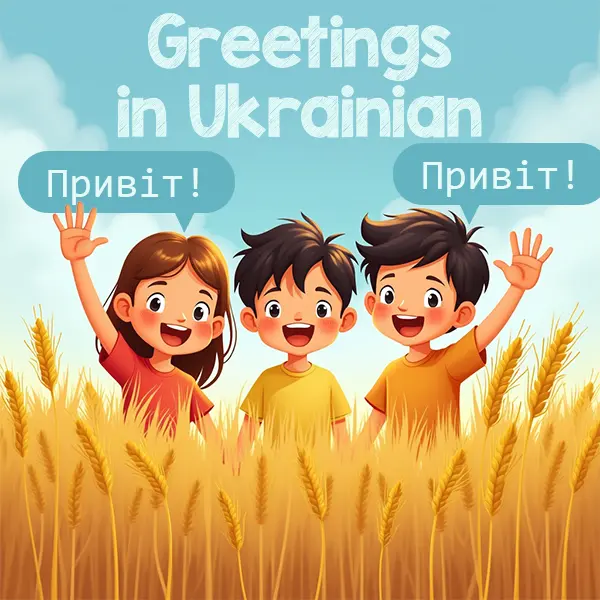
Personal pronouns (особо́ві займе́нники) are words used to represent people or things. Ukrainian has two singular you. We'll start by learning the most basic forms, the ones used when the pronoun is the subject (the one doing the action). Singular Plural я I ми we ти you (informal),ви you (formal) ви you він he,вона́ she,воно́ it вони́ …

ба́тько (та́то) father (dad)ма́ти (ма́ма) mother (mom)син sonдочка́ daughterбрат brotherсестра́ sisterдя́дько uncleті́тка auntдвою́рідний брат cousin (m)двою́рідна сестра cousin (f)діду́сь (ді́до) grandfatherбабу́ся (ба́ба) grandmotherпра́дід great grandfatherпраба́ба great grandmotherвнук grandsonвну́чка granddaughter роди́на / сімя́ …

All nouns in Ukrainian belong to one of the three genders, unless the word only has a plural form (e.g. двері a door). The gender of a noun is crucial in forming sentences correctly and using the correct grammar rules. Most of the time you can determine the gender of a noun by its ending. Masculine(чолові́чий рід) Feminine(жіно́чий рід) …

Introducing yourself is an essential part of any conversation, whether youre meeting new people, networking or making a business deal. In Ukraine, the way you introduce yourself can vary depending on the context and the level of formality required. After greeting someone with "Приві́т!" (Pryvit! Hi!, informal) or "Добрий день!" (Dobryi …

Ukrainian greetings are an important part of the countrys culture and social customs. There are many different types of greetings in Ukraine, ranging from formal to informal, and they vary depending on the time of day, the occasion, and the relationship between the speakers. One of the most common Ukrainian greetings is до́брий день …

The Ukrainians use a variation of the Cyrillic alphabet that consists of 33 letters, comprising 10 vowel letters, 22 consonants, and the soft sign ь. Though the alphabet has 10 vowel letters, the language utilizes only 6 distinct vowel sounds, or phonemes. Stress in Ukrainian can fall on any syllable in a word; for learning purposes, the …
